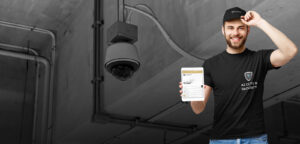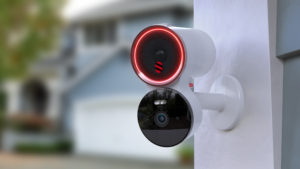Security System Installation: Professional vs. DIY
Security System Installation: Professional vs. DIY
Home security is a top priority for many homeowners, and a security system installation is one of the best ways to protect your home and family. However, when it comes to installing a security system, homeowners are faced with two options: professional installation or a do-it-yourself (DIY) approach. In this blog post, we will explore the pros and cons of both options to help you make an informed decision about which approach is best for your home.
Professional Installation:
Pros:
Expertise: Professional installers are experts in their field and have the knowledge and experience to properly install and maintain your security system. They are familiar with the latest technology and can provide recommendations for the best equipment to meet your needs.
Quality: Professional installers use high-quality equipment and materials that are designed to last. They also have the necessary tools and equipment to ensure the installation is done correctly and efficiently.
Warranty: Many security systems come with a warranty that is only valid if the system is installed by a professional. This means that if there are any issues with the system, the warranty will cover the cost of repairs or replacement.
Time-saving: Professional security system installer can complete the installation in a timely manner, allowing you to start using your security system as soon as possible.
Cons:
Cost:
Professional installation can be expensive, and the cost will vary depending on the type of system and the complexity of the installation.
Limited customization:
Professional installers typically install the systems according to the manufacturer’s instructions, which means that you may not be able to customize the system to meet your specific needs.
DIY Installation:
Pros:
Cost:
A DIY installation can save you money in the long run, as you will not have to pay for labor costs.
Customization:
A DIY installation allows you to customize your security system to meet your specific needs.
Control:
A DIY installation gives you more control over the installation process and allows you to make changes as needed.
Cons:
Expertise:
Installing a security system is a complex task that requires a certain level of expertise. If you are not familiar with the process, you may make mistakes that can compromise the effectiveness of the system.
Time-consuming:
A DIY installation can take much longer than a professional installation, and you may need to take time off from work or other obligations to complete the installation.
Limited warranty:
Many security systems do not come with a warranty if they are installed by the homeowner, which means that if there are any issues, you will be responsible for the cost of repairs or replacement.
Quality:
If you are not familiar with the latest technology and equipment, you may not be able to purchase the best quality materials and equipment, which can affect the overall effectiveness of your system.
The Conclusion:
Both professional and DIY installation have their own advantages and disadvantages. Professional installation provides expertise, quality, and warranty, but it can be costly. On the other hand, DIY installation is cost-effective and customizable, but it can be time-consuming and requires expertise. Ultimately, the best option for you will depend on your budget, your level of expertise, and your specific needs. If you are not comfortable with the installation process, it is best to hire a professional to ensure that your security system is installed correctly and effectively.
What Do We Recommend When it Comes to Security System Installation?
After considering the pros and cons of both professional and DIY security system installation, it is clear that a professional security system installation services are the best choice for most homeowners. While a DIY installation may seem like a cost-effective option, the potential risks and drawbacks outweigh the potential savings.
One of the main benefits of professional installation is the expertise and experience that professional installers bring to the table. They have the knowledge and skills to properly install and maintain your security system, ensuring that it is effective and reliable. They also use high-quality equipment and materials that are designed to last, and can provide recommendations for the best equipment to meet your needs.
Another key benefit of professional installation is the warranty that comes with it. Many security systems come with a warranty that is only valid if the system is installed by a professional. This means that if there are any issues with the system, the warranty will cover the cost of repairs or replacement.
On the other hand, a DIY installation can be time-consuming and requires a certain level of expertise. If you are not familiar with the process, you may make mistakes that can compromise the effectiveness of the system. Additionally, many security systems do not come with a warranty if they are installed by the homeowner, which means that if there are any issues, you will be responsible for the cost of repairs or replacement.
In conclusion, while a DIY installation may seem like a cost-effective option, the potential risks and drawbacks outweigh the potential savings. It is always safer to choose a professional security system installer who can ensure that your security system is installed correctly and effectively, giving you peace of mind and protection for your home and family.





